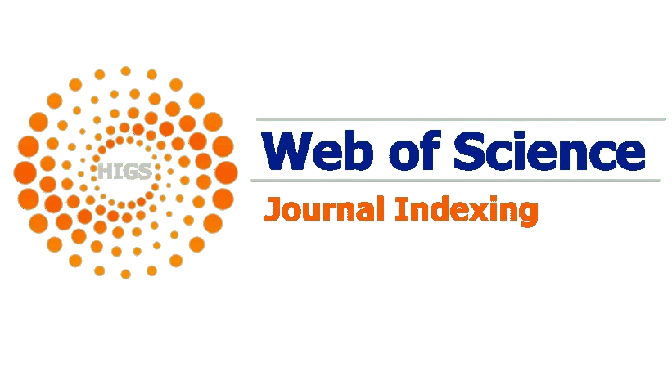SHIPPING OIL FUEL BY GROUP PELANGSIR AS A COMMUNITY LIVELIHOOD MUARA TEWEH
Abstract
The rise of slashing as an alternative to profitable work is carried out by the middle to lower class people of Muara Teweh. Passing is done because of the lack of job opportunities so that the community is a source of livelihood. This work for some people in Muara Teweh is only used as a side job because the income from the main job is not enough to meet their daily needs, the purpose of this study is to describe the actions of the BBM slasher, to describe the function of the BBM slasher community group, to analyze the consequences received or experienced by the slasher with the presence of slimming activity. The method used in this research is a qualitative method. Data source selected by purposive sampling. The data collection was carried out by the technique of observation, interview and documentation. Technical data analysis using qualitative analysis with data reduction steps, data presentation and drawing conclusions, shunts The results of the study illustrate the prevalence of be used as a side job, take advantage of living conditions, provide a lot of profit and little capital, the function of the curator group is of two kinds, namely the function of the group for individuals as a means of establish social relations and group functions for the community as social control, the positive impact is for people who are far away facilitate the distribution of fuel to villages, create new job opportunities The negative impact is for the shunters themselves, such as competition between fellow pangsirs, conflicts among shunters and the general public who are currently experiencing queuing for fuel at gas stations, raiding smugglers' losses, paying fines, and confiscation of goods.
Keywords
Full Text:
PDFReferences
Azri, M. S. P. (2017). Latar Belakang Pembentukan Kelompok Sosial Mahasiswa Pendatang. Jurnal Online Mahasiswa FISIP, 4(2), 5–10.
Bonzo, C. R., Jahi, A., & Radhakrishna, R. B. (2005). Persepsi Pemandu/Petandu Terhadap Pembentukan Kelompok IPPHTI, Jawa Barat. Jurnal Penyuluhan, 1(1).
Fitri, R. N., & Jayanti, I. R. (2020). Fenomena Seleb Hijrah: Tendensi Ekslusivisme dan Kemunculan Kelompok Sosial Baru. Muharrik: Jurnal Dakwah Dan Sosial, 3(01), 1–17.
Hadipranata, A. F. (1999). Pengaruh Pembentukan Kelompok (Team Building) Terhadap Etos Kerja Dan Kontribusinya Bagi Produktivitas Kerja Insani. Jurnal Psikologi, 26(1), 18–28.
Mustafa, H. (2011). Perilaku manusia dalam perspektif psikologi sosial. Jurnal Administrasi Bisnis, 7(2).
Novita, N., Lubis, K. S., & Sundari, R. (2019). Pembentukan Kelompok Usaha Bersama Perempuan Di Kelurahan Tuah Karya Kota Pekanbaru. Diklat Review: Jurnal Manajemen Pendidikan Dan Pelatihan, 3(1), 62–66.
Nurmayanti, S., Sakti, D. P. B., & Agustiani, E. (2020). Pembentukan Kelompok Usaha Bersama (KUBE) Berbasis Potensi Lokal Dalam Rangka Pemberdayaan Masyarakat. Abdi Insani, 7(2), 200–203.
Rahma, D. A., Suyudi, S., & Nuryaman, H. (2020). Hubungan Persepsi Petani Terhadap Pembentukan Kelompok Tani Dengan Minat Berkelompok. Jurnal Agristan, 2(2).
Rena, E., & Yusuf, Y. (2017). Komunitas K-popers Pekanbaru (Studi Tentang Pembentukan Kelompok Sosial). Riau University.
Rohmayanti, R., Margono, M., Agusta, H. F., Rinjani, W. A., Cahyani, N., Wijayanti, T., & Rana, Y. L. (2020). Pembentukan Kelompok Pendukung Asi (Kp-Asi) Tingkatkan Cakupan Asi Dan Mpasi. Celebes Abdimas: Jurnal Pengabdian Kepada Masyarakat, 2(1), 7–15.
Said, A., & Muslimah, M. (2021). Evaluation of Learning Outcomes of Moral Faith Subjects during Covid-19 Pandemic at MIN East Kotawaringin. Bulletin of Science Education, 1(1), 7–15.
Saidang, S., & Suparman, S. (2019). Pola Pembentukan Solidaritas Sosial dalam Kelompok Sosial Antara Pelajar. Edumaspul: Jurnal Pendidikan, 3(2), 122–126.
Setiawati, S., Kismini, E., & Rochana, T. (2017). Penggunaan Asesmen Autentik Oleh Guru Sosiologi Di Sma Negeri 1 Boja (Pokok Bahasan Materi Pembentukan Kelompok Sosial). Solidarity: Journal of Education, Society and Culture, 6(2), 135–147.
Sulistyani, A. T., & Wulandari, Y. (2017). Proses pemberdayaan masyarakat Desa Sitimulyo Kecamatan Piyungan Kabupaten Bantul dalam pembentukan kelompok pengelola sampah mandiri (KPSM). Jurnal Pengabdian Kepada Masyarakat (Indonesian Journal of Community Engagement), 2(2), 146–162.
Yudhistiro, K., Sonalitha, E., Rosyadi, H. E., & Pratama, A. H. (2019). Pembentukan Kelompok Informasi Masyarakat Kelurahan Gadingkasri, Kota Malang. JMM-Jurnal Masyarakat Merdeka, 2(2).
DOI: http://dx.doi.org/10.20527/js.v11i1.11067
Article Metrics
Abstract view : 169 timesPDF - 167 times
Refbacks
- There are currently no refbacks.

This work is licensed under a Creative Commons Attribution 4.0 International License.
Has been indexed and abstracted by:























